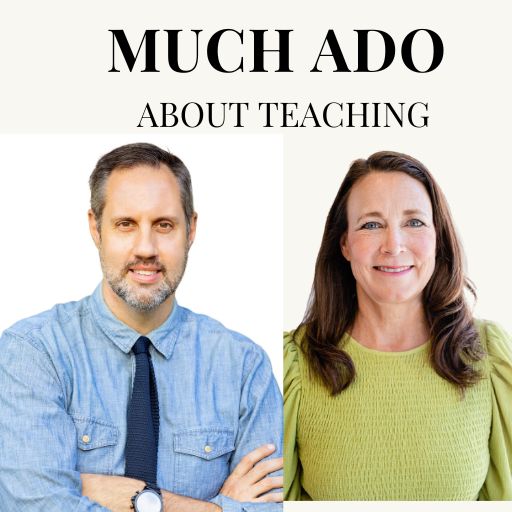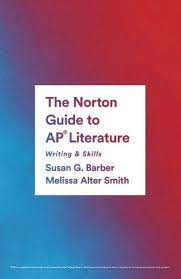The only other time I scored for the prose question was the infamous Zenobia question of 2018 (taken from Nathaniel Hawthorne’s The Blithedale Romance). Although many students misinterpreted the nature of that relationship, I remember really loving the Zenobia prompt. This year, I enjoyed reading for the prose question once again.
This year’s prose excerpt was taken from Mavis Gallant’s short story “One Morning in June” and asked students to analyze Mike’s experience painting abroad in Paris.
What students did well:
Thesis
As a whole, students felt confident making a statement on Mike’s experience in Paris, calling it unexpected or uncomfortable. Many took it a step further, contrasting Mike’s parents’ decision to send him abroad to his indecision and apathy once there, establishing not only a thesis but a great line of reasoning.
Commentary and Evidence
I was impressed with students’ integration of evidence from the text. Gallant’s excerpt is witty and rife with literary elements that students could use for quotations. “It was rather like exposing someone to a case of measles and watching for spots to break out,” was a quote used in more than half of the essays I scored. Because the excerpt’s plot is easy to understand, most students offered at least some commentary on Mike’s behavior in Paris, often discussing his state of uncertainty and lack of motivation in studying abroad.
Sophistication
I found myself giving the sophistication point most often for vivid and persuasive writing or for those who connected the excerpt to a broader context. I especially liked those who discussed how Mike’s American attitude, one designed around earning a living, conflicted with the more laissez-faire attitude of his art teacher, Mr. Chitterley.
Where students can improve:
Thesis
As stated by many other educators, the use of the word “complex” in the prompt often throws students. The word is designed to open students up to many different interpretations of the text, but instead, many simply call the work “complex” in their thesis. A student who only echoes or restates the prompt will not earn the thesis, although many did eventually take a stance or comment on Mike’s experience later in the essay.
Students can improve by stating a clear and interpretative thesis in the introduction, followed by a clear line of reasoning. Getting this done in the intro ensures not only a thesis point but higher points in Row B of the rubric.
Commentary and Evidence
I was excited to read students’ responses on this text especially, since Mike is in a state of life that so many of them are about to enter. Mike is unsure what he should do. If he follows his passions, will he still earn enough to make a living? And is this even his passion or simply a skill that his parents chose for him to pursue? Ironically, because this issue is so similar to students’ lives and choices, many essays moved away from commentary and straight into judgment. To label Mike as a lazy loser doesn’t provide a deep insight into the text. Instead, students begin relying on their own experiences rather than evidence from the text to support their argument.
Another thing students could do better, as I see in every year, is to focus on the “why does this matter?” of the text. Simply pointing out that the text uses figurative language and imagery doesn’t earn 3 or 4 points—you need to connect those to the reader’s experience or interpretation of the text. Lower-scoring essays often worked in a loop that I remember from essays before the 2019 rubric change. This loop goes:
1) Identify a literary term.
2) Point out where to find literary term (optional: You can also define literary term).
3) Restate that this proves there was a literary term.
This is literary element name-dropping, not analysis.
Sophistication
I’d recommend that students reread their essay before concluding it, if time permits. Several students identified something new in the essay and pivoted their argument. However, this can derail an established line of reasoning or move they away from previous arguments.
Teaching points/extensions for the classroom:
- Remind students that everything should be moving towards the “why.” In my classroom, I emphasize APE paragraphs. APE stands for:
- Assert – What does this mean?
- Prove – How do you know?
- Explain – Why does this matter?
If a paragraph falls short I can usually point out that they asserted and proved something but never explained why it mattered. Or, they jumped right into why something matters without establishing an argument (A) or proving with evidence (P). I have a one page handout and bookmark with this information for free in my TpT store for anyone interested.
- When teaching literary terms, be sure to emphasize the function of literary terms in an AP Lit essay. I tell students that lit terms are the sprinkles on a donut, but the good part of the donut is made up of argument and evidence.
- I can’t emphasize this enough: study excerpts. The CED instructs to teach short fiction but then steers us towards short stories. Students also need practice in excerpts of prose where the character is not introduced to us. Practice dropping students into texts and watching them figure it out. This, hands down, is the best prep for a Q2 question, in my opinion.
Texts that I’d suggest for excerpt practice include:
- The Sun Also Rises by Ernest Hemingway, Homegoing by Yaa Gyasi, “Flowers for Algernon” by Daniel Keyes, and There There by Tommy Orange.
- FRQs from AP Classroom. My favorite is “Hitting Trees With Sticks” by Jane Rogers in Unit 1.
- FRQs from past exams. I like The Blithedale Romance (18), Fasting, Feasting (08), and The Crossing (99)
- I have a unit on excerpt practice and strategies on TpT and it’s one of my favorites to teach! Here is the link for anyone interested.
- Spend time looking at past exams and prompts. Practice breaking down a prompt in addition to writing on-demand essays.
- Discuss what is meant by complexity and how to construct a complex argument. Here is a blog post I wrote on the topic with lots of free lesson ideas!

Gina Kortuem is a teacher, mother, and educational resource creator who lives in St. Paul, MN with her husband and three children. She has taught AP English Literature, basic and Honors levels grades 9-10, Shakespearean Literature, World Literature, British Literature, Journalism, and Creative Writing and is an award-winning One Act Play writer.












